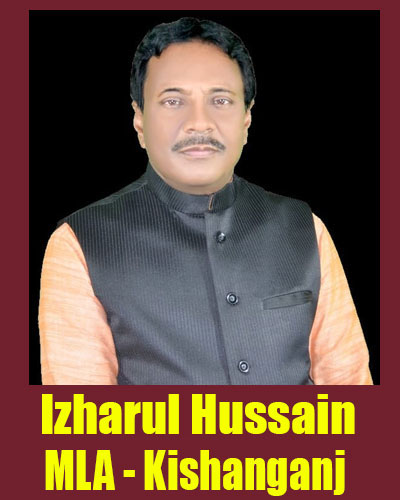RTI (Right to Information) Act, 2005 is implemented in India about 5 years ago, however still common people have various questions regarding the act. Below are some of the frequently asked questions related to RTI Act, 2005.
Q. What is the term of office and other service conditions of IC?
Ans. IC shall hold office for a term of five years from the date on which he enters upon his office or till he attains the age of sixty-five years, whichever is earlier and shall not be eligible for reappointment as IC. 2. Salary will be the same as that of the Election Commissioner. This will not be varied to the disadvantage of the IC during service. 3. IC is eligible for appointment as CIC but will not hold office for more than a total of five years including his/her term as IC.
Q. How is the State Information Commission constituted?
Ans. 1. The State Information Commission will be constituted by the State Government through a Gazette notification. It will have one State Chief Information Commissioner (SCIC) and not more than 10 State Information Commissioners (SIC) to be appointed by the Governor. 2. Oath of office will be administered by the Governor according to the form set out in the First Schedule. 3. The headquarters of the State Information Commission shall be at such place as the State Government may specify. Other offices may be established in other parts of the State with the approval of the State Government. 4. The Commission will exercise its powers without being subjected to any other authority.
Q. What is the eligibility criterion and what is the process of appointment of State Chief Information Commissioner/State Information Commissioners?
Ans. The Appointments Committee will be headed by the Chief Minister. Other members include the Leader of the Opposition in the Legislative Assembly and one Cabinet Minister nominated by the Chief Minister. The qualifications for appointment as SCIC/SIC shall be the same as that for Central Commissioners. The salary of the State Chief Information Commissioner will be the same as that of an Election Commissioner. The salary of the State Information Commissioner will be the same as that of the Chief Secretary of the State Government.
Q. What are the powers and functions of Information Commissions?
Ans. 1. The Central Information Commission/State Information Commission has a duty to receive complaints from any person - a) who has not been able to submit an information request because a PIO has not been appointed ; b) who has been refused information that was requested; c) who has received no response to his/her information request within the specified time limits ; d) who thinks the fees charged are unreasonable ; e) who thinks information given is incomplete or false or misleading ;and f) any other matter relating to obtaining information under this law. 2. Power to order inquiry if there are reasonable grounds. 3. CIC/SCIC will have powers of Civil Court such as - a) summoning and enforcing attendance of persons, compelling them to give oral or written evidence on oath and to produce documents or things; b) requiring the discovery and inspection of documents; c) receiving evidence on affidavit ; d) requisitioning public records or copies from any court or office e) issuing summons for examination of witnesses or documents f) any other matter which may be prescribed. 4. All records covered by this law (including those covered by exemptions) must be given to CIC/SCIC during inquiry for examination. 5. Power to secure compliance of its decisions from the Public Authority includes- a) providing access to information in a particular form; b) directing the public authority to appoint a PIO/APIO where none exists; c) publishing information or categories of information; d) making necessary changes to the practices relating to management, maintenance and destruction of records ; e) enhancing training provision for officials on RTI; f) seeking an annual report from the public authority on compliance with this law; g) require it to compensate for any loss or other detriment suffered by the applicant ; h) impose penalties under this law; or i) reject the application. (S.18 and S.19)
Q. What is the reporting procedure?
Ans. 1. Central Information Commission will send an annual report to the Central Government on the implementation of the provisions of this law at the end of the year. The State Information Commission will send a report to the State Government . 2. Each Ministry has a duty to compile reports from its Public Authorities and send them to the Central Information Commission or State Information Commission, as the case may be. 3. Each report will contain details of number of requests received by each Public Authority, number of rejections and appeals, particulars of any disciplinary action taken, amount of fees and charges collected etc. 4. Central Government will table the Central Information Commission report before Parliament after the end of each year. The concerned State Government will table the report of the State Information Commission before the Vidhan Sabha (and the Vidhan Parishad wherever applicable). (S.25)
Q. What are the penalty provisions?
Ans. Every PIO will be liable for fine of Rs. 250 per day, up to a maximum of Rs. 25,000/-, for - i. not accepting an application; ii. delaying information release without reasonable cause; iii. malafidely denying information; iv. knowingly giving incomplete, incorrect, misleading information; v. destroying information that has been requested and vi. obstructing furnishing of information in any manner. The Information Commission (IC) at the Centre and the State levels will have the power to impose this penalty. The Information Commission can also recommend disciplinary action for violation of the law against an erring PIO. (S.20)
Q. What is the jurisdiction of courts?
Ans. Lower Courts are barred from entertaining suits or applications against any order made under this Act. (S.23) However, the writ jurisdiction of the Supreme Court and High Courts under Articles 32 and 225 of the Constitution remains unaffected.
Q. What is the role of Central/State Governments?
Ans. 1. Develop educational programmes for the public especially disadvantaged communities on RTI. 2. Encourage Public Authorities to participate in the development and organization of such programmes. 3. Promote timely dissemination of accurate information to the public. 4. Train officers and develop training materials. 5. Compile and disseminate a User Guide for the public in the respective official language. 6. Publish names, designation postal addresses and contact details of PIOs and other information such as notices regarding fees to be paid, remedies available in law if request is rejected etc. (S.26)
Q. Who has the Rule making power?
Ans. Central Government, State Governments and the Competent Authority as defined in S.2(e) are vested with powers to make rules to carry out the provisions of the Right to Information Act, 2005. (S.27 & S.28)
Q. Who has the power to deal with the difficulties while implementing this act?
Ans. If any difficulty arises in giving effect to the provisions in the Act, the Central Government may, by Order published in the Official Gazette, make provisions necessary/expedient for removing the difficulty. (S.30)
RTI Bihar, RTI ACT 2005, Right to Information ACT 2005, RTI India, Know RTI, File RTI, Use your RTI Power











